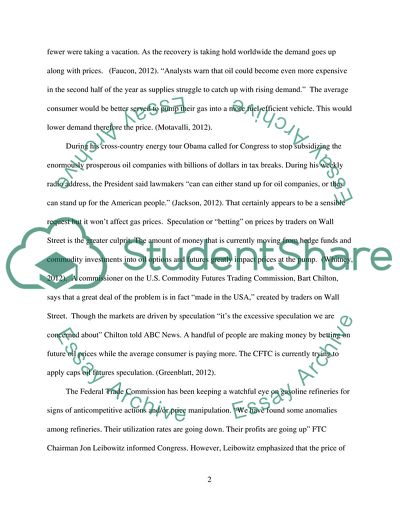Cite this document
(The Real Reason Gas Prices Are Rising Essay Example | Topics and Well Written Essays - 2379 words, n.d.)
The Real Reason Gas Prices Are Rising Essay Example | Topics and Well Written Essays - 2379 words. Retrieved from https://studentshare.org/finance-accounting/1592325-what-the-real-reason-gas-prices-are-rising
The Real Reason Gas Prices Are Rising Essay Example | Topics and Well Written Essays - 2379 words. Retrieved from https://studentshare.org/finance-accounting/1592325-what-the-real-reason-gas-prices-are-rising
(The Real Reason Gas Prices Are Rising Essay Example | Topics and Well Written Essays - 2379 Words)
The Real Reason Gas Prices Are Rising Essay Example | Topics and Well Written Essays - 2379 Words. https://studentshare.org/finance-accounting/1592325-what-the-real-reason-gas-prices-are-rising.
The Real Reason Gas Prices Are Rising Essay Example | Topics and Well Written Essays - 2379 Words. https://studentshare.org/finance-accounting/1592325-what-the-real-reason-gas-prices-are-rising.
“The Real Reason Gas Prices Are Rising Essay Example | Topics and Well Written Essays - 2379 Words”, n.d. https://studentshare.org/finance-accounting/1592325-what-the-real-reason-gas-prices-are-rising.


